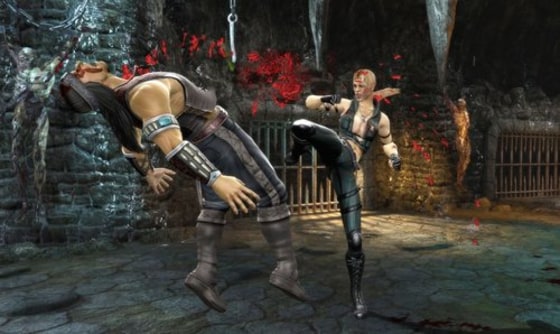While game enthusiasts and the game industry are busy rejoicing over the Supreme Court decision on behalf of video games ... others aren't so thrilled with the news and, instead, are vowing to continue the fight against violent games.
On Monday, the Supreme Court declared unconstitutional a California law that would have criminalized the sale of violent video games to children. In the 7 to 2 decision, the high court stated that games — like books, film and music — are protected by the First Amendment right of free speech. (Click here to read the full decision.)
Despite this, California Senator Leland Yee (D-San Francisco) — the man who crafted the law that the Supreme Court overturned — has said he will try again.
"Even with the existing court, there may be, if we craft the bill differently, there may be a basis for trying to get another hearing within the Supreme Court on this critical matter," Yee said, according to the San Francisco Appeal.
Yee said he will be studying the dissenting opinions to try to develop a revised bill.
Meanwhile, California Congressman Joe Baca (D-Rialto) — the man who has tried repeatedly to get warning labels put on video games — decried the Supreme Court's decision and promised to continue to try to put the kibosh on violent games.
"I continue to sponsor and advocate for legislation in the House of Representatives that would mandate all video games with a rating of 'Teen' or higher be sold with a cigarette style warning label, citing the health risks of excessive exposure to violent media," Baca wrote in a statement issued Monday.
Both men argue that violent games are harmful to those who play them while downplaying the fact that the game industry already employs a ratings system (via the Entertainment Software Rating Board) designed to make sure violent games do not end up in the hands of kids. And they downright ignore the fact that even the Federal Trade Commission has found that the game industry is doing a better job than any other entertainment industry when it comes to keeping adult content out of the hands of minors.
"The evidence is absolutely crystal clear that there are harmful effects on our children," Yee told the SF Appeal.
Crystal clear? Far from it. The Supreme Court itself roundly dismissed the evidence supposedly showing the harmful effects of video games on children calling it "not compelling." And don't get me started on the number of studies showing the positive impact that games — yes, even violent ones — can have on players.
But for game enthusiasts and the video game industry, this is just the latest in an ongoing string of legal and legislative fights. As the Entertainment Software Association has pointed out, prior to Monday's decision twelve lower federal courts had already struck down the California law and other similar statutes.
Knowing that this battle is sure to be ongoing, the Video Game Voters Network has started up a petition, asking gamers to vow to continue to fight for their favorite medium's right to free speech.
But ultimately, video games are simply going through what many forms of entertainment went through when they, too, were still young. Comic books, movies, rock music — they've all been deemed the devil's work and faced bans at one point or another throughout history.
In fact, folks from many corners of the entertainment industry had been keeping a close eye on the Supreme Court's decision, fearful of the impact the California law would have on other art and entertainment mediums should it be upheld. And so with the law's dismissal, it isn't just the video game industry that's been celebrating.
"The motion picture industry is no stranger to governments' incursion on freedom of expression," said Chris Dodd, chairman of the Motion Picture Association of America, in a statement. "From the very inception of the movie industry, attempts to restrict speech have threatened the creativity of American movie-makers. We applaud the Supreme Court for recognizing the far-reaching First Amendment implications posed by the California law."
But perhaps Ted Price, president of Insomniac Games, summed up the video game industry's reaction best when he told Kotaku, "The U.S. Supreme Court has affirmed what we've known all along — that videogames deserve the same protection under the First Amendment as any other form of entertainment.
"But what does this really mean to those of us who make games for a living?" he said. "It means that we won't have to self-censor because a store owner could be fined for selling one of our games to a minor. It means that we won't have to try to predict how a legislative body interprets ambiguous 'rules' regarding game content. But most important it means we can continue freely expressing ourselves in one of the most vibrant and culturally relevant artistic mediums in existence."
For more game news, check out:
- Sony CEO asked to step down on heels of hacking fiasco
- 1st Amendment beats ban in video game battle
- Black Eyed Peas dance their way to Xbox and Wii
- Movie makers, comic book authors rally around video games as Supreme Court hearing looms
Winda Benedetti writes about games for msnbc.com. You can follow her tweets about games and other things right here on Twitter.
